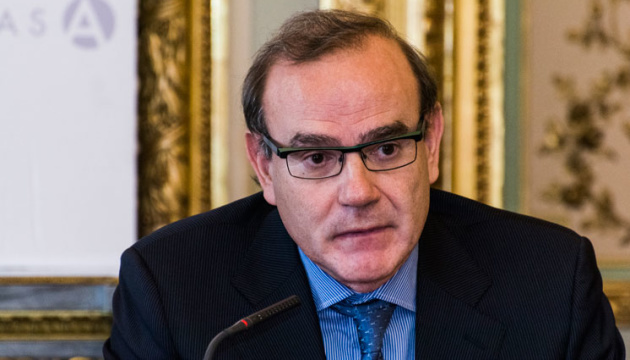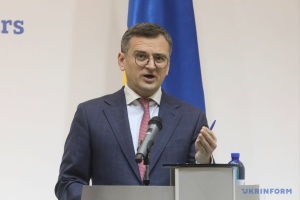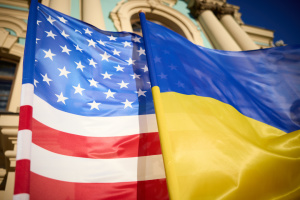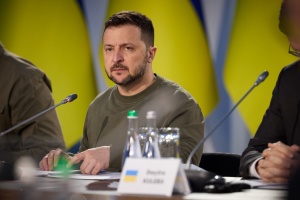
EU: Russia’s actions in Crimea remain challenge to international security
A corresponding statement was made by Enrique Mora, Deputy Secretary General for Political Affairs at the European External Action Service, during the United Nations Security Council high-level Arria-formula meeting on Crimea on March 12.
“The illegal annexation of the Crimean Peninsula by the Russian Federation started seven years ago. Today, as always, the EU stands in full solidarity with Ukraine, supporting its sovereignty and territorial integrity. The illegal annexation remains a direct challenge to international security, with grave, serious implications for the international legal order,” Mora said.
According to him, the increasing Russian militarization of Crimea and Sevastopol has a negative impact on the security situation in the whole Black Sea region. The restrictions to the unhindered and free passage of ships through the Kerch Strait by Russia are clear violations of international law.
Enrique Mora noted that the EU reconfirmed the implementation of its consistent non-recognition policy of the illegal annexation, including through restrictive measures, together with its partners. At the same time, the EU calls on all states to consider similar non-recognition measures in line with the UN General Assembly Resolution 68/262.
The European diplomat urged Russia to comply with its international commitments, refrain from violating the fundamental human rights and freedoms on the occupied peninsula.
“We welcome the approach of Ukraine to seek justice using the international legal system: the European Court of Human Rights, in arbitration courts and the International Court of Justice. The decision of the ECHR on 14 January, recognising that Russia has exercised de facto control on Crimea since 27 March 2014, is very important in this regard. The EU supports the work of international organizations in this regard – the OSCE, the Council of Europe, and of course the United Nations,” Mora stressed.
He also underlined that the EU welcomed Ukraine’s diplomatic efforts and was currently studying the proposals related to the international Crimean Platform for the de-occupation of the peninsula.
“Allow me to stress the deterioration of the situation of human rights on the peninsula, which is particularly worrying as a direct consequence of the illegal annexation. Residents of the peninsula face systematic restrictions of their fundamental freedoms. The rights of the Crimean Tatars have been particularly targeted, through the shutting down of Crimean Tatar media outlets, and the banning of the activities of the Mejlis, their self-governing body, and the persecution of its leaders and members of their community. The EU expects Russia to reverse these decisions and to end the pressure on the Crimean Tatar community,” said the Deputy Secretary General for Political Affairs at the European External Action Service.
He noted that in accordance with UN General Assembly resolution 75/29, “it is crucial that all human rights violations are investigated and international human rights actors must have full, free and unrestricted access to the peninsula.”
As a reminder, the European Union pursues a consistent policy of non-recognition of the illegal annexation of Crimea. In addition to sanctions against Russian officials and entities over the actions against Ukraine's sovereignty and territorial integrity, the EU also applies a separate package of restrictive measures in response to the illegal annexation of Crimea and Sevastopol which directly affects any economic activity in Crimea and Sevastopol. Currently, this package of sanctions, introduced in 2014, has been extended until June 23, 2021.
ol




